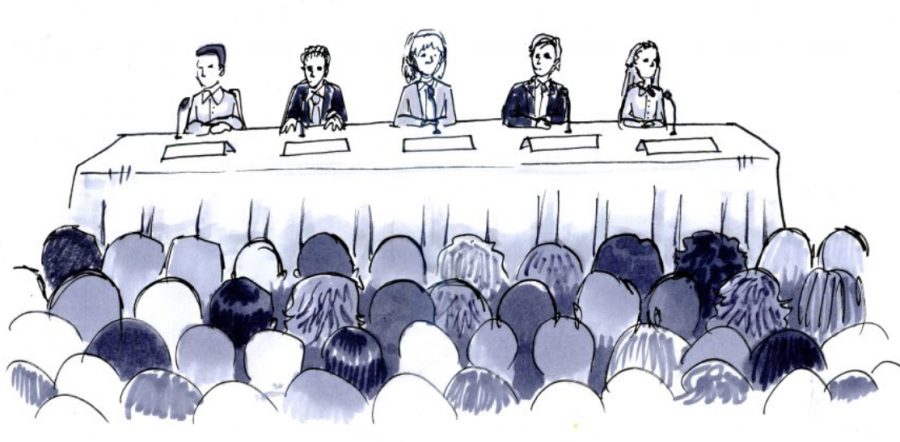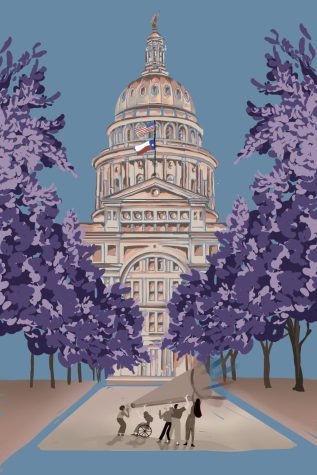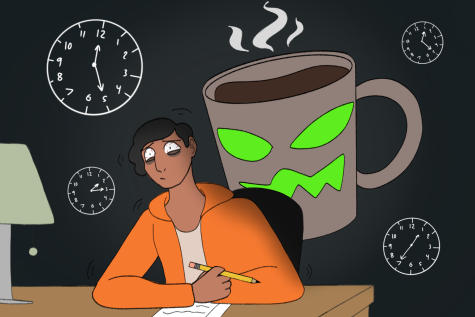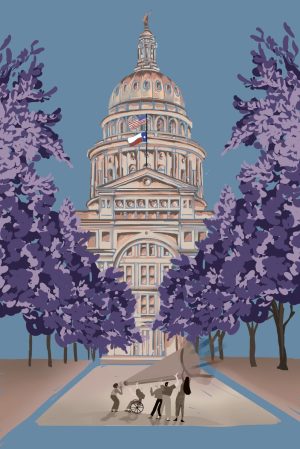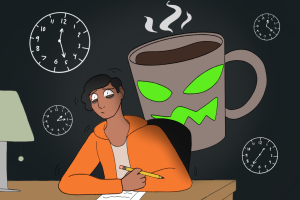Implications of banning Kanye’s music
November 30, 2022
From convoluted Instagram posts to the increasingly hateful rhetoric he’s been platforming, the entire world is tuned in to the downfall of Ye, formerly known as Kanye West.
On Nov. 1, the UT student government unanimously voted to advocate for banning Ye’s music at football games after his antisemetic and anti-Black remarks. Unfortunately, advocating to ban Ye’s music at football games in place of bolstering Jewish safe spaces is not substantially supportive to the Jewish community on campus.
Alexander Feinstein, student government representative and contributor to the bill, explained the thought process behind its creation.
“I felt that the way that the University could best show that we do not stand for what Kanye West said, (and) that we could take an extra step even past that, was to promote the banning of Kanye West(’s music) at the football games,” said Feinstein.
While an attempt to deplatform Ye could be the start of an important conversation about racism and hate speech, censorship like this should not become co-opted and replace affected communities’ material needs, such as proper dining hall options.
Rabbi Will Hall of the Texas Hillel foundation explained that while University administration has been generally sympathetic, there are places where support for the Jewish population glaringly falls short. For one, UT does not have a kosher meal plan or restaurant.
“If one is more traditional, or follows the traditional customs, it might not be the most welcoming campus, even if that isn’t intentional,” Hall said.
Censoring Ye as a means to supplement the Jewish community is unproductive. The bill sets an ambitious goal to eliminate hate speech in the future, but it has unforeseen consequences.
The only way to ban Ye’s music at games, without being performative, is if it sets a precedent for other problematic musicians. However, consider how many artists that would be. Among the ranks with a history of bigotry that is not addressed are Katy Perry, David Bowie and plenty of others. It is unrealistic to assume that every other discriminatory musician’s work, or songs in general, would be banned, too.
Consistency and precedent come into question again considering the school’s record with music at sports games. It would not make sense to pass this bill for the same football games that proudly play The Eyes of Texas — UT’s problematic fight song.
“It’s challenging. It’s sort of multi-tier, multi-pronged. It’s not an easy solution. And I do really respect and appreciate the University’s time and efforts, but there is always room for improvement,” Hall said. “I’m really proud of Jewish students for stepping up and using their voice and, and really trying to make a difference.”
It is important to address that Ye’s massive platform is what makes the impact of his remarks significant. West amplifying antisemetic narratives and conspiracy theories with his extensive access to the public is reprehensible and irresponsible. However, banning his songs, the lyrics of which are not necessarily antisemetic, is not a fruitful solution. Symbolic gestures are only as meaningful as the mouths they feed.
If UT administration were to ban Ye from the football game playlist, it should heighten the standard for other artists and songs that are played — including “The Eyes of Texas.” However, if no future precedent is set, there is little use in implementing a ban at all, considering that it would not bring tangible support to the Jewish community on campus.
Hosseini is an International Relations freshman from Sugar Land, Texas

